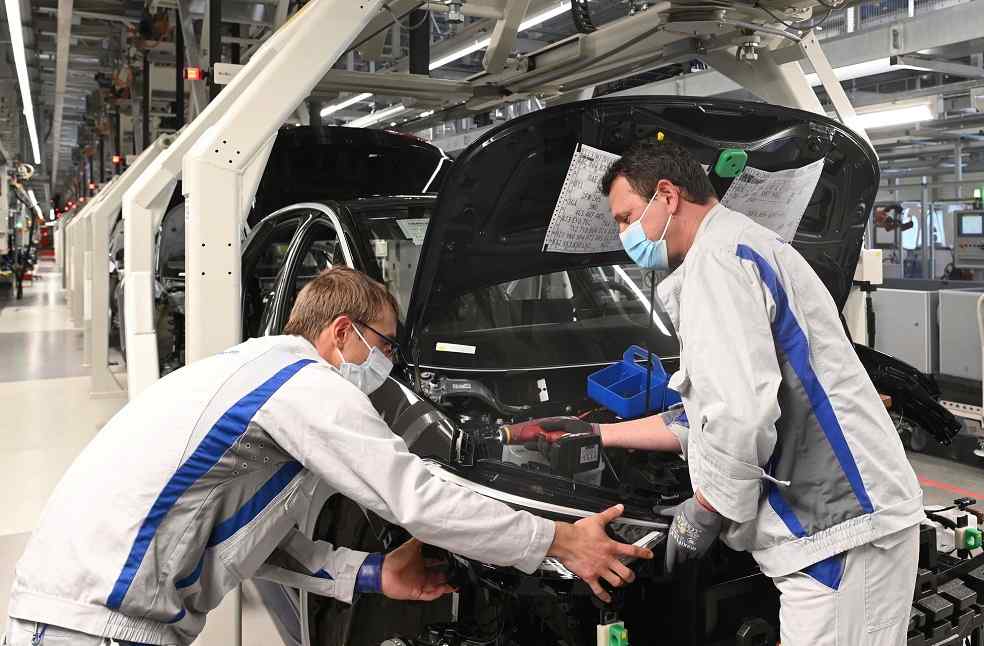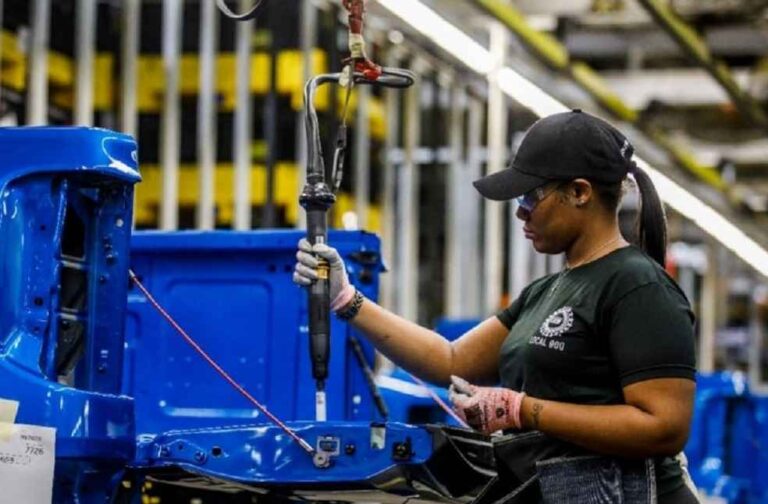Germany’s automotive sector, a pillar of the nation’s economy, faces a profound upheaval, triggering extensive job cuts and a significant reconfiguration. Long heralded as the backbone of German industry, the sector now contends with the challenges of transitioning to electric vehicles (EVs) while grappling with intense global competition, particularly from Chinese manufacturers.
Economic Pressures and the Electric Shift
The transition to electric vehicles, essential for achieving climate goals, has presented a formidable challenge. Major corporations like Volkswagen, Audi, and Daimler Truck are using this shift to aggressively reduce costs, often at the expense of their workforce. The industry’s strategic decisions have led to reduced production capacities, shift cuts, and an unprecedented wave of layoffs.
Volkswagen’s CEO, Oliver Blume, exemplifies this aggressive approach, declaring a relentless focus on “costs, costs, costs.” The automaker has slashed production capacities by 25%, adjusting operations to fewer shifts at key plants. Audi, despite its premium status, is not exempt, preparing to shutter its Brussels plant, affecting 3,000 employees.

Demand and Rising Competition
Anticipated surges in European demand for EVs have failed to materialize. Instead, demand stagnates, creating a challenging environment for German automakers. Compounding this issue is the influx of Chinese-made electric vehicles, which are technologically comparable yet more affordable. This has placed German carmakers under immense pressure, with many plants struggling with underutilized production capacities.
A study by Marklines for Deutsche-Presse-Agentur (dpa) highlighted that German car plants operated at just over two-thirds of their capacity in 2023. This trend persists, with major plants like Volkswagen’s Wolfsburg facility and Tesla’s Grünheide plant operating at around half capacity.
Global Repercussions of Local Decisions
The effects of these developments ripple beyond Germany’s borders. Stellantis, the world’s fourth-largest automaker, is contemplating discontinuing some of its 14 brands, potentially ending iconic names like Maserati and Alfa Romeo. Tesla has also put its planned expansion at the Grünheide plant on hold, signaling broader caution given the uncertain market demand.

Daimler Truck, the world’s largest truck manufacturer, scales back operations in response to declining sales across Asia and Europe. The company plans to reduce the workforce at its Wörth headquarters by placing half of the 12,000 employees on short-time working.
Suppliers in Crisis
Suppliers, facing severe cost pressures, are hit hardest. ZF, a key supplier of advanced mobility products, announced plans to cut one in four jobs in Germany by 2028, marking the largest job cuts in its history. Bosch and Continental are also implementing major workforce reductions, with Continental preparing to spin off its automotive supply business, effectively separating profitable and loss-making divisions.
Smaller suppliers confront an even more dire situation. Insolvencies among long-established companies like Recaro, BBS Autotechnik, and Flabeg Automotive highlight the financial turmoil within the supply chain.
EV WORLD | VinFast Enters Qatar Market with Al Mana Holding as Exclusive EV Dealer





